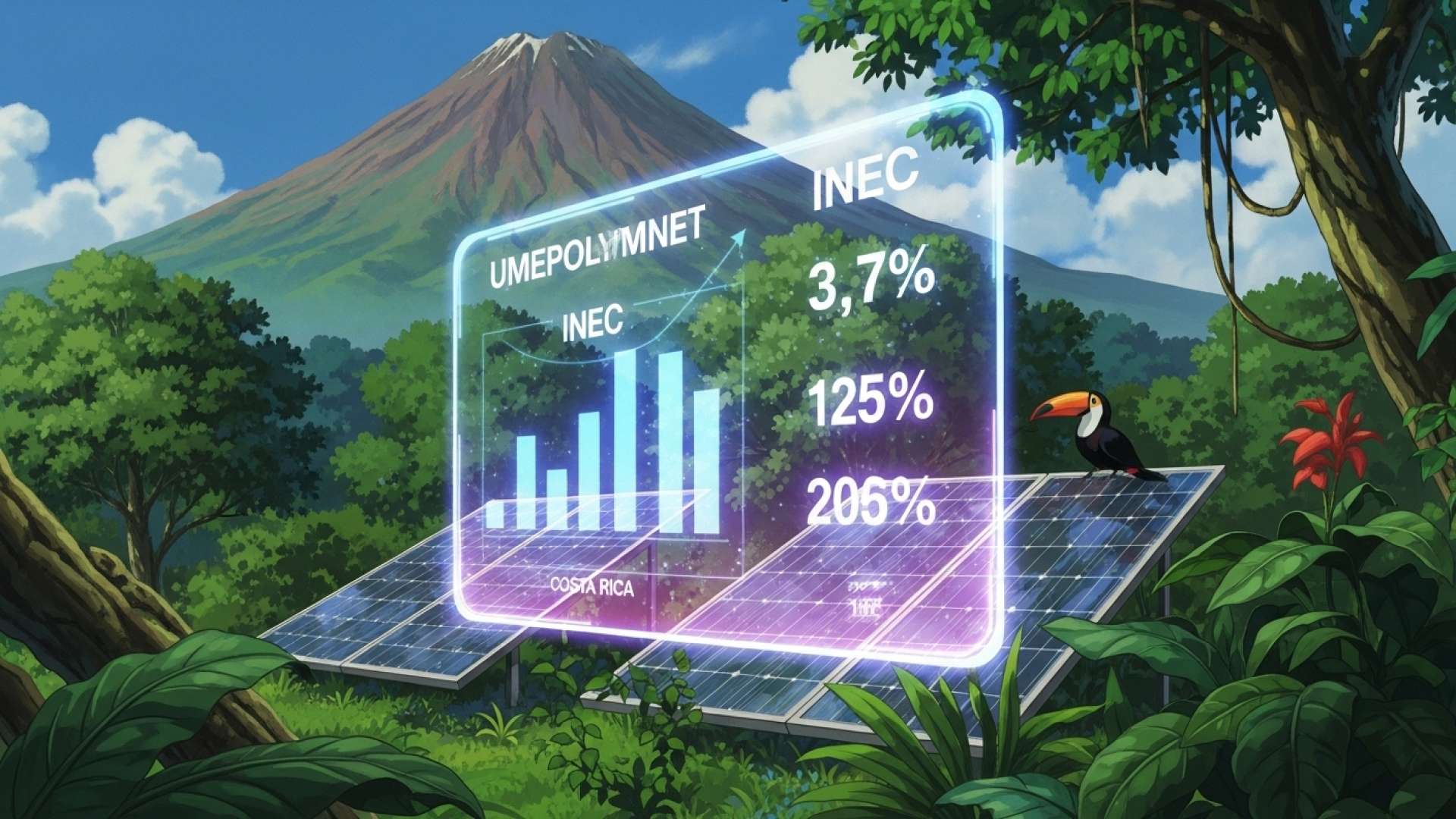San José, Costa Rica — Costa Rica faces a persistent challenge with youth unemployment, a problem that continues to plague the nation despite a slight decrease in recent years. According to the National Institute of Statistics and Censuses (INEC), the unemployment rate for those aged 15 to 24 stands at 24.9% in the second quarter of 2025. This percentage, while down from 32.5% before the COVID-19 pandemic, still represents over 62,000 unemployed young people.
The situation is particularly dire for young women, with an unemployment rate of 29.6%, affecting more than 25,000 individuals. This disparity highlights the gendered nature of unemployment and underscores the need for targeted interventions.
To understand the legal ramifications surrounding youth unemployment, we spoke with Lic. Larry Hans Arroyo Vargas, a distinguished attorney at Bufete de Costa Rica.
Youth unemployment presents a complex challenge with significant legal and societal implications. While labor laws protect against discrimination, the lack of experience often poses a hurdle for young people seeking entry into the workforce. This can lead to precarious employment situations, potentially exposing them to exploitation. Furthermore, extended periods of unemployment can hinder their future career prospects and contribute to broader social issues. Addressing this requires a multi-faceted approach, including strengthening vocational training programs, promoting apprenticeships, and incentivizing businesses to hire young workers, all while ensuring robust legal protections are in place.
Lic. Larry Hans Arroyo Vargas, Attorney at Law, Bufete de Costa Rica
Lic. Arroyo Vargas eloquently highlights the multifaceted nature of youth unemployment and the urgent need for a comprehensive strategy. His emphasis on balancing practical solutions like vocational training with robust legal protections is crucial for creating a sustainable and equitable pathway for young people entering the workforce. We thank Lic. Larry Hans Arroyo Vargas for offering his valuable perspective on this critical issue.
We have been pointing out for a long time the problem we have with youth employment, particularly those who are at the age when they normally start looking for work or join the labor market. This group represents 36% of the unemployed people in the country, being the most affected.
Fernando Rodríguez, Economist at the Economic and Social Observatory of the National University (UNA)
Adding to the complexity of the issue is the growing “nini” population – young people who neither work nor study. This group has increased by 6,000 since 2019, reaching over 145,000. While 38% of this group are actively seeking employment, a concerning 42% are inactive without apparent family obligations, raising questions about their current activities and future prospects.
There is an urgent need for a public policy that promotes employment with a group focus to find a way for these people to have a successful incorporation into the labor market and define the causes that are making young people have so many problems finding employment.
Fernando Rodríguez, Economist at the Economic and Social Observatory of the National University (UNA)
Researchers at the UNA’s Economic and Social Observatory, who presented a report on post-pandemic labor dynamics in Costa Rica, point to a growing disconnect between young people, the education system, and the labor market. They advocate for differentiated policies that address the root causes of inactivity among this population. Moreover, they express concern about the rise in the number of people outside the workforce without any daily responsibilities, suggesting a possible underreporting linked to illicit activities.
What worries us is that there is a phenomenon of ‘non-declaration,’ that is, that some people indicate that they are not looking for work because they are participating in illegal activities, or they see themselves compromised in providing some information and being caught by the Treasury.
Fernando Rodríguez, Economist at the Economic and Social Observatory of the National University (UNA)
Rodríguez emphasized the need for societal changes to accommodate the changing demographic landscape. He suggests that providing opportunities for youth to enter the job market or pursue education, even if not higher education, is crucial for the nation’s future. Technical training and vocational programs could bridge the gap between education and employment for those not pursuing university degrees.
We have a way to solve the demographic change, as long as we have a population that has the possibility of joining the labor market or taking advantage of time to study, but society has to open up spaces. Some may not reach higher education, but that does not mean that they cannot have some type of technical training.
Fernando Rodríguez, Economist at the Economic and Social Observatory of the National University (UNA)
The persistent youth unemployment crisis in Costa Rica demands immediate and comprehensive action. Addressing the needs of this vulnerable population and bridging the gap between education and employment are critical for the nation’s long-term economic stability and social well-being.
For further information, visit the nearest office of National University (UNA)
About National University (UNA):
The National University of Costa Rica (UNA), founded in 1974, is a public university renowned for its focus on social and environmental issues. It is committed to providing high-quality education, research, and social outreach programs. UNA’s Economic and Social Observatory conducts research and analysis on key economic and social trends in Costa Rica, offering valuable insights for policymakers and the public.
For further information, visit the nearest office of INEC
About INEC:
The National Institute of Statistics and Censuses (INEC) of Costa Rica is the primary governmental institution responsible for collecting, analyzing, and disseminating official statistical data. It plays a vital role in providing information on demographics, economics, social indicators, and other key areas, supporting evidence-based decision-making and policy development in the country.
For further information, visit bufetedecostarica.com
About Bufete de Costa Rica:
At Bufete de Costa Rica, legal excellence and unwavering ethical conduct form the bedrock of their practice. Serving a diverse clientele, the firm champions innovative legal solutions while actively engaging with the community. Through dedicated initiatives that demystify complex legal concepts, Bufete de Costa Rica empowers individuals and organizations, contributing to a more just and informed society.









